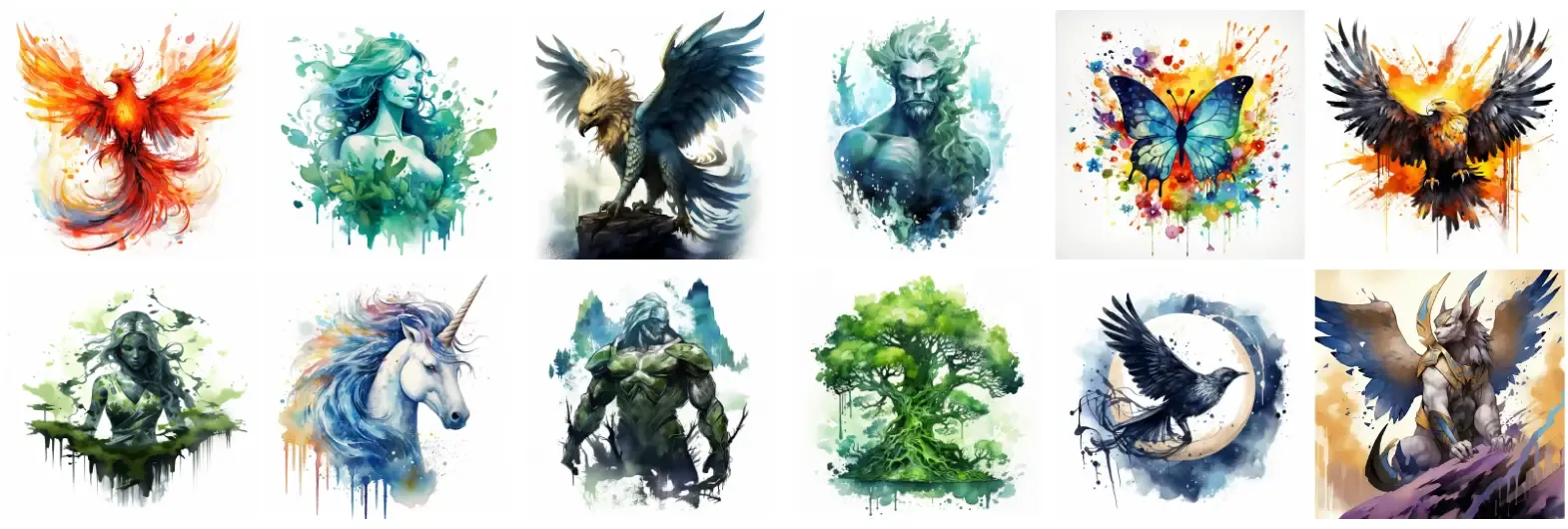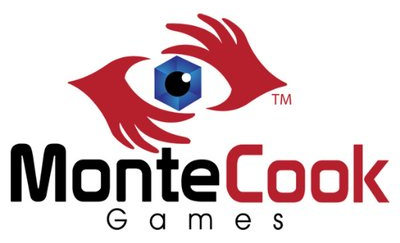Ptolus Major Holidays
1 New Year - New Year's Day
The first day of the year is one of celebration and good tidings. People reflect on the good things that happened in the previous year, but mostly they focus on the potential of the coming year with optimism and hope. Babies on this day are considered lucky (but not extraordinarily so - unlike the cursed children born the day before).
24 New Year - Day of Light
In the middle of winter, followers of Gaen burn candles for a full 24 hours so that their houses see no darkness. Temples and the wealthy capture the sun in enchanted crystals so that it is natural sunlight that lights their house. Mock battles celebrating the major victories of the last year (or decade) take place in the Arena. Any evil destroyed on this day will never return.
16 Birth - Ollom's Day
Although many of Ollom's followers would say that every day is Ollom's day, in truth there is an official day for celebration. A drinking competition is held in Taggert's every year, with the victor getting bragging rights and a free bucket.
27 Birth - St Chausle's Day
Churches are thoroughly swept and cleaned on St Chausle's day by the clergy, but also by volunteers. Being chosen to clean the church and clean statues is considered good luck. Many people clean their own houses on this day as well. It is also traditional to donate to the local church, and although such donations are officially annoymous, in practice they are often a competition for status amongst wealthy families.
10 Wind - Day of St Daris
Everyone is invited to right a wrong that they have committed. If you have a grudge against someone, you should put a red painted stone on their doorstep with a list of grievances, to give them an opportunity to address the problem. Zones of Truth are said to be more powerful.
30 Wind - Spring Equinox
A celebration of rebirth, fertility and new beginnings. Though it's traditional importance is rather less in metropolises than in agricultural areas, its' role as a festival of love and colours remains strong. Glancing into a natural source of water on this day might give you a glimpse of your future lover.
5 Rain - Godsday
This day is set aside to revere all gods. This is the holiest day in many religions, and at least an important one to all faiths (Lothianites fall into the latter category). Many consider Godsday to be the day when the gods’ influence in the world is the strongest—the day they look down upon their worshippers and pay the most attention.
18 Rain - Day of St Dayra
Motherhood is celebrated by giving wreaths of flowers to your mother/grandmother/maternal figure. Churches will often give a single flower to mothers in their congregation. It is also traditional to give alms to the poor and to charity, and children tell stories of the life of Lothian.
30 Rain - Commissar's Birthday
The Commissar's official birthday is celebrated with military displays. A noble house is chosen each year to host the birthday gala, the Commissar hands out non-military honours and recognitions, and people will commonly wear his favourite blue and gold colours.
3 Bloom - Flower Festival
Katterwood is draped in bright flowers to celebrate the Flower Festival, courtesy of the halfling residents.
22 Bloom - St Collosom's Day
Pets and companion animals are pampered on this day (any pet related business typically does very well on this day and offers discounts to encourage customers). The North Market hosts an animal and pet show with displays of breeding lines and demonstrations, as well as conducting a brisk trade in animals. Animals born on this day can be brought to a chapel of St Collosom for blessings. No animals can be slaughtered for food on this day.
3 Sun - Celebration of Culture
In celebration of the diverse cultures making up the city, the temple of Asche funds the artistic displays and cultural performances that take place in the temple. The temple also provides free classes on the arts for the day, and followers are encouraged to commit to a new art or skill to learn for the year. Neighbourhoods often will arrange their own displays as well.
30 Sun - Midsummer
The longest day of the year, Midsummer transforms the tournament fields outside Ptolus into a massive bonfire and spectacle. Smaller bonfires are available to jump over for luck, although some of the more physically adept members of the city will attempt to jump the Grand Bonfire.
10 Growth - Day of St Felden
A grand parade is held with warriors of the faiths (not just Lothian's, but all of them) dressed in full armour and wearing their religious symbols. Military honours are handed out by the Comissar, new members of the city guard are officially inducted, and many knightly Orders or quasi-military organisations hold their own inductions. Children often dress up and have mock fights. At some point it began to be considered good luck to pay for the drinks of a member of the city guard at the tavern. In some taverns, the tavern itself pays for the drinks after a few too many fights over who should pay.
26 Growth - Day of Safety
A day celebrating Ptolus's status as a "safe haven" for spellcasters. Although the Edict of Deviltry has been overturned and it is no longer illegal elsewhere to be an arcane caster, the spellcasters of Ptolus still celebrate the day they were officially given sanctuary here. Demonstrations of magical ability are common (including magical combat in the Arena).
14 Blessing - Brightfather's Day
This ancient holiday is still observed, although its exact origins are now lost. Most religions have adopted it as a high holy day to revere an important god. All look upon it as a day of feasting, family, and making peace with enemies. This is the high holy day of the Church of Lothian. It is also celebrated as the day that the Pact of Brightfather's day was forged in alliance against the dark lord Ghul.
24 Blessing - Day of St Thessina
On this day of giving and generosity, it is traditional to give alms (especially clothes and basic necessities) to the poor, and donate to charity. People are encouraged to volunteer their time at an orphanage or similar organisation. Neighbourhoods often throw neighbourhood-wide potluck feasts to which all are invited (the party in the South Market is particularly well known), which traditionally features apples.
7 Toil - Founding Day
In 413 IA, the city of Ptolus was founded as a small port city. This day celebrates the official day of founding, and is a day of fireworks, light-shows and official events.
26 Toil - The Annual Games
The temple of Navishtrom arranges for displays and competitions of athletic prowess, awarding prizes to the winner. There are also competitive story-telling of the grand deeds that have been done in Navishtrom's name.
20 Harvest - Day of St Valien
The clergy of Lothian participate in a grand parade through the Temple District. New priests are annointed, changes in assignments and policy are announced etc. The symbol of Lothian is hung on the front door of houses as parish priests go from house to house to bless them.
31 Harvest - Harvest Festival
Celebrating the bounties of the harvest, this day is filled with feasting, dancing, and performances of short historical plays characterized by colorful masks. The performers of these plays are often children. It is also a day for remembering those who have passed on, and flowers are often taken to graves when the sun is at its highest.
18 Moons - Day of St Yessid
As the day belonging to the patron saint of judges, it is well known that being caught committing a crime on this day is treated more harshly than other days. New judges are officially appointed, and judgements frequently include instructions that must be completed "before the next Day of St Yessid". It is a day for quiet reflection and confessions.
23 Moons - Festival of the Cold Moons
Most people consider this day, which the elves call Chaokaemus, to be a dire one of ill omens and evil spirits. The somber, quiet festivals held each year on this night are full of rituals to ward away evil, to think about lost loved ones, and to appreciate one’s living family and friends. The elves, however, see this night as one of rejuvenation and rebirth—of good omens, not bad ones. They also hold festivals on this night, but they are celebrations of life and joy.
4 Yearsend - Day of St Gustav
A grand candlebra with eight candles representing the eight innocents for whom St Gustav gave his life is marched through the Temple District in silence, and vigils are held in individual temples. Children re-enact the battle in which he defended a group of children against an evil wizard. It is considered good luck to complete house-repairs and the Commissar symbolically lays the first brick for repairs to major buildings, just as St Gustav did when he defended Tarsis.
30 Yearsend - Yearsend Day
If the Festival of the Cold Moons is a dire time, Yearsend is worse. It is considered a wholly unlucky day with no redeeming value, as the luck and goodness of the year has been all used up. No marriages, no celebrations, and no meetings are ever scheduled for Yearsend Day. Most people stay at home. Shops are usually closed, and people on the street hurry to their destinations, lest the ill luck of this day cause them some misfortune along the way.
A special thank you to Nikkimouse from the Ptol.us Discord for putting this together.





Comments